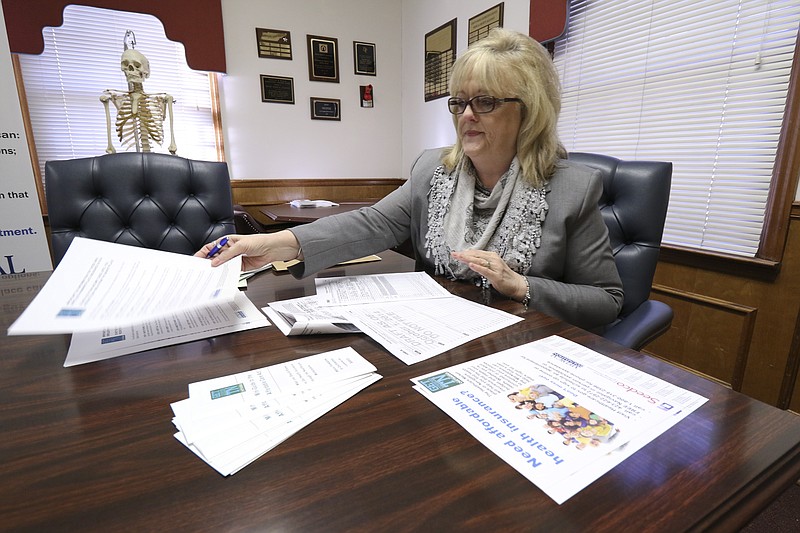Even though I don't begin my annual "Tax Tips" until March, many of you are already banging heads with Uncle Sam and his dreaded IRS department. As I'm undergoing surgery this month with several weeks of non-typing recuperation, it seems important to translate some terms and answer a few questions at this time to aid with 2017 taxes. (As an aside, readers know I'm certainly no accountant, but I can research, read, and - at least for the moment - write to, hopefully, save you all time and frustration. Until the dust settles, and we know what the new tax plan really says and, perhaps, what loopholes might apply to the general public, I'm making no promises for this same time next year.)
1. File "head of household" to better fill your pockets. This term signifies an unmarried status for at least half the tax year, plus be responsible for more than half of the household expenses, and have had a dependent living under your roof for at least half of that tax period. Because it comes with a higher standard deduction and a lower tax rate, it's currently perfect for single parents, unmarried breadwinners, or caretakers.
2. What about itemizing deductions? With the brand-new tax law in effect for 2018, this year looks to be the last time to take advantage of all those advantageous deductions that save many middle-class folks money (i.e. my husband and me). Consequently, I urge readers who itemize to take every single withdrawal possible. While the standard deduction is certainly better than nothing, those of us who donate to charities, have major medical expenses, annual mortgage interest, and so forth will be losers after 2017 tax returns. Deduct EVERYTHING: mileage to see the doctor; that stamp to mail the memorial donation for your friend who died; and, of course, the contribution itself; the clothing you itemized and delivered to Good Will (among others) and the mileage it took to get you there. With a written RX, deduct a gym membership if the physician prescribes attendance at the facility (water aerobics for a bad back, for example) and even certain OTC supplements if Doc writes a 'script to help your painful arthritic thumb. Put that brain to work, folks, and save, save, save.
3. Yes, I love refunds (even if it means I'm not deducting enough monthly), but what if we can't afford to pay our taxes? Call the IRS. While we often think of them as a wolf in sheep's clothing, they're not as "baaad" (couldn't resist!) as their reputation. Most are friendly, accommodating, and help us to figure out a payment plan to still allow us to satisfactorily shell out enough for groceries. Because every payment plan differs, it's imperative to quickly speak with an IRS agent or your tax professional for help digging you out of that ugly ditch. Some options include:
a) Online payment means the taxpayer owes less than $50K and has filed all required forms. Apply online for an immediate decision; if the agency approves this method, it'll charge a one-time setup fee, depending on income and method of repayment. (While fees change with the number of family members, amount owed, and so forth, direct debit is always the less expensive payment form.)
b) Installment plans are procedures by which payment is accepted if we're not allowed the monthly payment plan. Mail in a completed Form 9465 and Form 433-F, and an agent will get back in touch with you with applicable information.
c) Offer in Compromise (OIC) is an application to see if you can pay less than owed and is only for those taxpayers who can't pay squat towards their outstanding balance. Fill out Form 656 and pay the $186 that starts off the program.
Today's column touches only the tip of the government's Department of Taxation's iceberg. Particularly if consumers are filing their own taxes, it behooves us to go online or even to contact the IRS for answers before sending in our 2017 tax form(s). We all know that January – April is filing season and, therefore, the busiest time to try to reach an agent. Fifteen minutes on a phone call is the norm with longer times anticipated so perhaps try to multi-task while on hold. Phone service wait times are higher on Monday and Tuesday, during Presidents' Day weekend, and around the April tax filing deadline. Be patient, though; this could be your "Get out of jail free" informational card to ensure the IRS knows your sincerity and willingness to comply. Call (1-800) 829-1040 or check online (IRS.gov/help). For a face-to-face, many locales employ an office for just this purpose; use the Taxpayer Assistance Locator tool to find an office near you, and then call (844) 545-5640 to schedule an appointment.
Remember, until you've paid off your balance to Uncle Sam (plus interest and penalties), you'll never receive (or be able to spend) any future refunds. With this knowledge in mind, be aware the taxpayer must pay at least the agreed-upon monthly minimum. On the other hand, don't panic if circumstances change; assuming you fall on hard(er) times, immediately contact your Mr. Uncle Sam so you can make alternate arrangements. If payments simply stop with no explanation, that wolfish knock on your door assuredly will come sooner than later.
Contact Ellen Phillips at consumerwatch@timesfreepress.com
